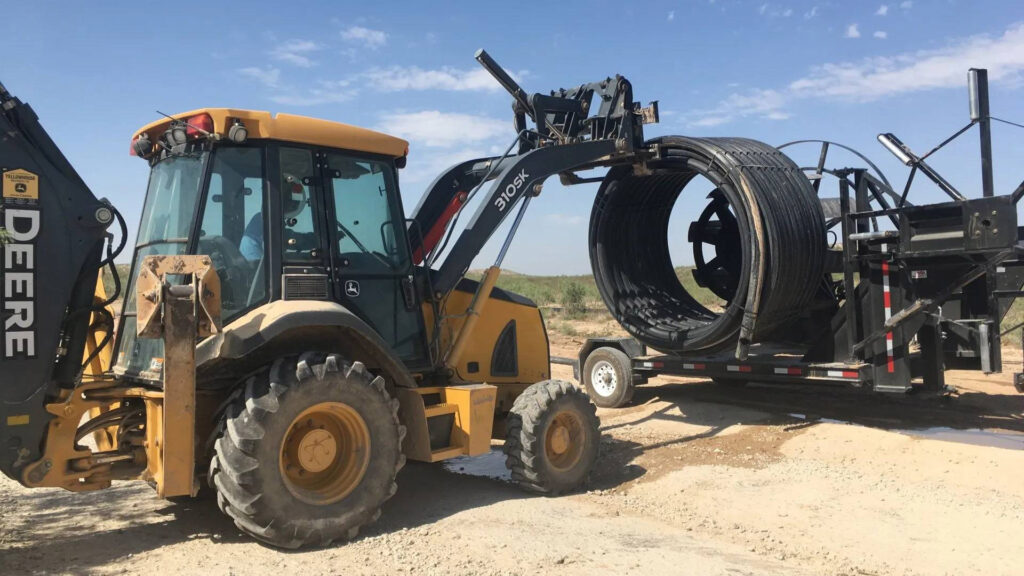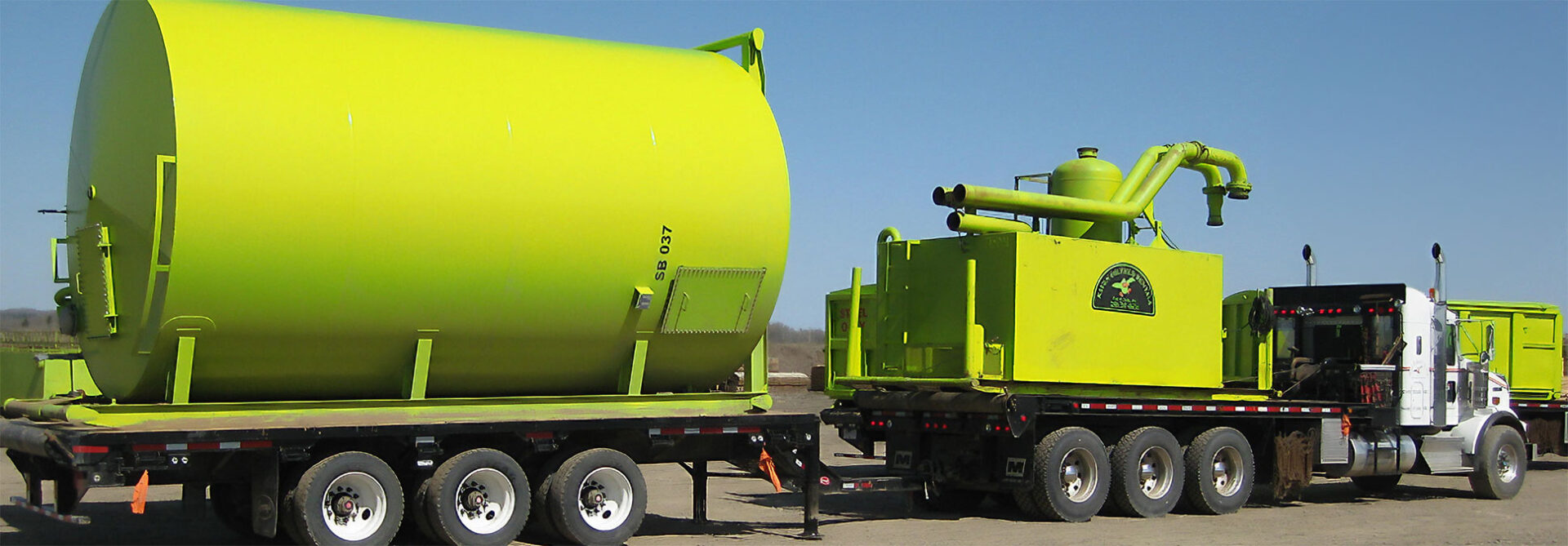Superior Rentals near me: where to locate the most reliable rental services
Wiki Article
A Comprehensive Overview to the Different Kinds Of Oil Field Equipment and Pipeline Equipment Available
The oil and gas industry counts greatly on specific equipment for efficient extraction and transportation. Different kinds of machinery, from drilling rigs to storage space tanks, play vital roles in this complex procedure. Each tool offers distinctive features that add to total functional success. Comprehending these elements is necessary for any individual entailed in the market. As the market progresses, so also do the modern technologies that sustain it. What innovations are on the perspective?
Drilling Rigs: The Backbone of Oil Exploration
Drilling rigs offer as the important equipment in the domain name of oil exploration, making it possible for companies to gain access to hydrocarbon gets buried deep underneath the Planet's surface. These rigs can be found in various types, consisting of land rigs, offshore rigs, and mobile units, each developed to run in specific atmospheres. Outfitted with advanced innovation, piercing rigs can pass through geological formations with precision, making sure reliable resource extraction. The structural stability and functional capacities of these rigs are crucial, as they need to hold up against extreme conditions and considerable stress. The choice of a drilling rig impacts the overall project cost and timeline, making it an important consideration for oil companies seeking to optimize their exploration initiatives and maximize performance in their procedures.Pumps: Crucial for Liquid Activity
In the oil extraction process, the function of pumps is significant, helping with the movement of liquids throughout numerous phases of production. Pumps are vital for carrying crude oil, water, and other fluids from below ground reservoirs to the surface and after that via pipes to refineries. They are available in various kinds, including centrifugal, positive variation, and completely submersible pumps, each serving specific objectives based upon the fluid characteristics and functional demands. Centrifugal pumps are commonly used for their performance in high-flow applications, while positive variation pumps master dealing with viscous liquids. The choice of pump influences general efficiency, functional security, and maintenance prices. Proper option and maintenance of pumps are vital for maximizing production and decreasing downtime in oil field procedures.Shutoffs: Managing Flow and Pressure

Shutoffs play a vital role in managing the circulation and stress of liquids within oil areas and pipelines. Various types of shutoffs offer distinctive applications, each designed to satisfy details features fundamental for efficient operation - Superior Oilfield Rentals Texas. Understanding the qualities and uses these valves is crucial for maximizing system efficiency and safety and security
Kinds of Valves
Important components in oil area procedures, valves play a critical function in managing the circulation and stress of liquids within pipes and devices. Different kinds of valves are utilized to meet the diverse needs of oil and gas manufacturing. Usual kinds consist of entrance valves, which provide a straight-line circulation and marginal pressure drop; globe shutoffs, recognized for their strangling abilities; and ball valves, identified for their quick on/off control. Additionally, check shutoffs protect against heartburn, while butterfly valves offer a light-weight remedy for controling flow. Each valve kind is made with details products and configurations to withstand the rough problems typically found in oil areas, making sure dependability and effectiveness in operations. Recognizing these types is crucial for reliable system administration.Valve Applications and Functions
While numerous types of valves offer unique purposes, their key applications rotate around controlling circulation and pressure within oil and gas systems. Shutoffs such as gate, world, and ball shutoffs regulate liquid movement, guaranteeing peak efficiency and safety and security. Entrance shutoffs are typically utilized for on/off control, supplying minimal flow resistance. World valves, on the other hand, offer precise flow law, making them appropriate for strangling applications. Ball shutoffs are preferred for their quick procedure and tight securing capabilities. In enhancement, stress relief shutoffs are crucial for stopping system overpressure, safeguarding devices honesty. Overall, the ideal choice and application of shutoffs boost operational effectiveness, making certain the dependable transportation of oil and gas via pipes and processing facilities.Compressors: Enhancing Gas Transportation
Compressors play an important duty in the reliable transport read here of gas, making sure that it relocates efficiently through pipelines over long distances. These tools increase the pressure of natural gas, enabling it to get over rubbing and altitude changes within the pipeline system. In addition, compressors assist in the harmonizing of supply and demand, accommodating changes in usage and manufacturing prices. Different kinds of compressors are used in the sector, consisting of centrifugal, reciprocating, and rotating screw compressors, each offering unique benefits based upon the functional needs. Normal upkeep of these compressors is vital to optimize performance and lessen downtime, inevitably adding to a reliable gas transport network. Their critical feature highlights the value of compressors in the overall oil and gas facilities.Storage Tanks: Safe and Effective Fluid Management
Effective transport of natural gas counts on various support group, one of which is the appropriate management of tank. These containers play a vital role in safely containing liquids, making sure that operational efficiency is kept while lessening environmental threats. Built from resilient products, they are developed to endure high pressures and corrosive aspects. Effectively sized and purposefully situated, storage space containers help with the smooth flow of all-natural gas and other fluids, preventing traffic jams in supply chains. Regular upkeep and monitoring are essential to detect leakages or structural problems, promoting security and conformity with regulative criteria. Eventually, the reliable administration of storage tanks is crucial for the total stability and integrity of the oil and gas industry's liquid handling systems.
Pipeline Equipments: Facilities for Transport
Pipeline systems work as the backbone of the oil and gas sector, helping with the reliable transport of hydrocarbons over large ranges. These systems contain various elements, consisting of pipes, valves, pumps, and compressors, all thoroughly designed to ensure smooth flow. The materials utilized in pipeline building and construction, frequently steel or high-density polyethylene, are chosen for longevity and resistance to corrosion. Pipeline networks can span across land and water, connecting production sites to refineries and circulation. Additionally, advanced modern technology makes it possible for real-time monitoring of flow rates and pressure levels, improving functional performance. The critical positioning see this page of these pipes minimizes environmental impact while making the most of resource availability, therefore playing an essential role in meeting energy needs around the world.Safety And Security Equipment: Ensuring Worker and Environmental Management
The procedure of pipeline systems, while necessary for power transport, likewise provides significant safety challenges for employees and the setting. Safety devices plays a significant duty in minimizing these threats. Personal protective tools (PPE) such as headgears, gloves, and non-slip shoes safeguards employees from physical dangers. Furthermore, gas detection systems monitor for leakages, making sure that damaging compounds do not pose a hazard to workers or the bordering ecological community. Emergency situation shutdown systems are important for quickly stopping operations throughout a dilemma, avoiding possible catastrophes. Spill containment materials, consisting of absorbents and barriers, are basic for lessening environmental effect. In general, buying all-inclusive safety devices is crucial for keeping functional stability and shielding both workers and the setting in the oil and gas industry.
Frequently Asked Questions
see thisHow Do I Select the Right Oil Field Equipment for My Job?
Selecting the ideal oil area tools entails reviewing task requirements, spending plan restraints, and functional needs. Think about aspects such as devices dependability, compatibility with existing systems, and the provider's online reputation to guarantee peak efficiency and safety and security.What Are the Upkeep Demands for Oil Field Equipment?
Maintenance requirements for oil field tools consist of normal evaluations, lubrication, and prompt repairs. Operators should also stick to supplier standards, screen performance metrics, and guarantee compliance with safety laws to boost durability and efficiency.
Just How Can I Guarantee Conformity With Environmental Rules?
To guarantee compliance with ecological laws, companies need to perform regular audits, execute ideal techniques, invest in training, preserve appropriate documents, and stay upgraded on regulation (Superior Oilfield pipeline equipment rentals). Partnership with ecological companies can additionally boost adherence to regulationsWhat Is the Average Lifespan of Pipeline Equipment?
The average lifespan of pipeline devices usually varies from 20 to half a century, depending on factors such as material quality, environmental conditions, and upkeep techniques. Normal inspections can significantly influence longevity and operational performance.Exactly how Do I Safely Move Oil Field Equipment to Remote Locations?
Transferring oil field equipment to remote areas calls for mindful preparation, including route assessment, securing authorizations, making use of ideal lorries, and making certain security procedures are followed. Correct training and interaction among crews are important for effective transport.Report this wiki page